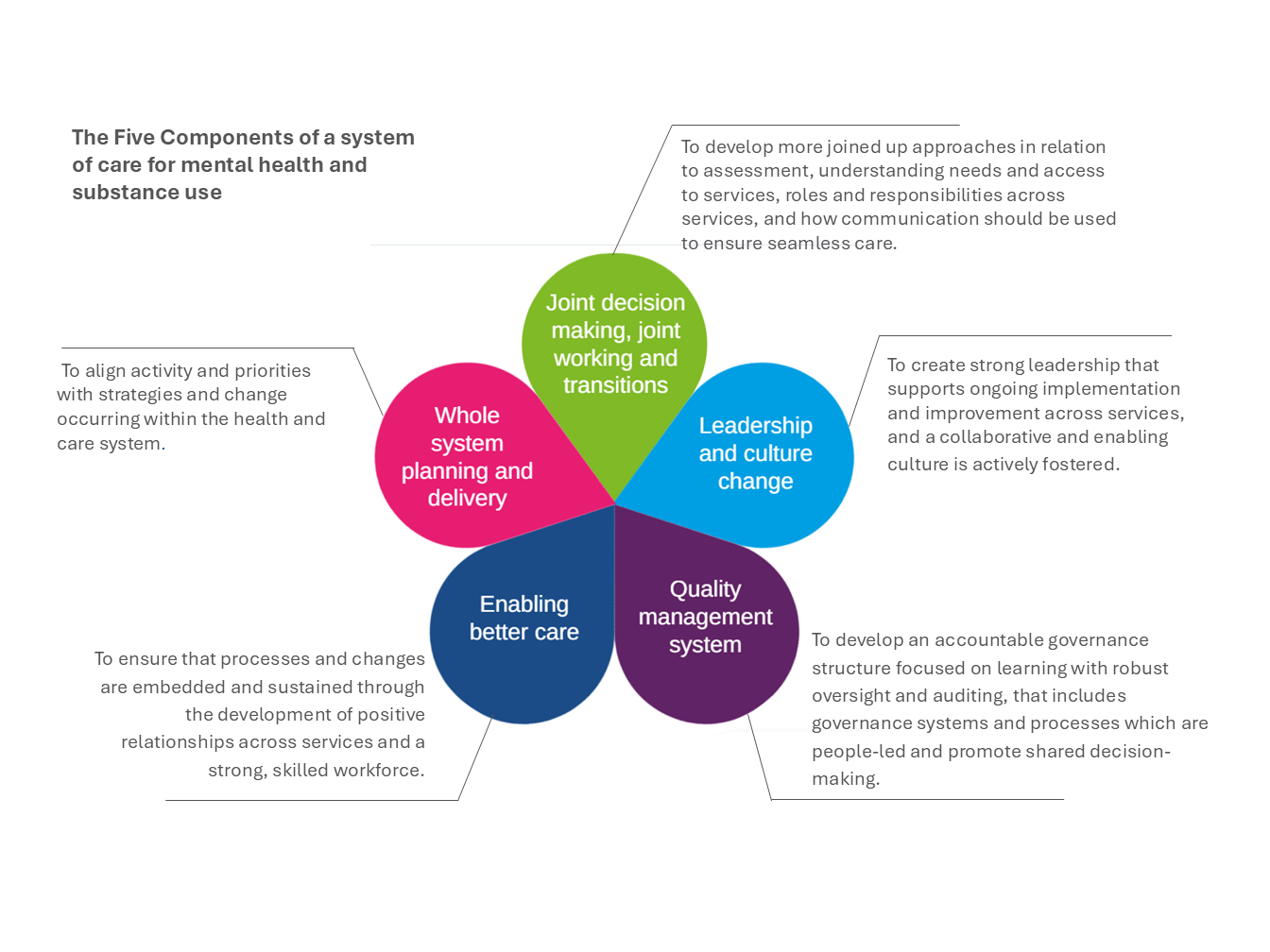The National Mental Health and Substance Use Protocol provides guidance for local interface documents and systems of care for people with co-occurring mental health and substance use conditions.
The Scottish Government should ensure that each area has an agreed protocol in relation to the operational interfaces between mental health services and substance use services.
Recommendation One from The Way Ahead: Rapid Review
What the protocol covers

